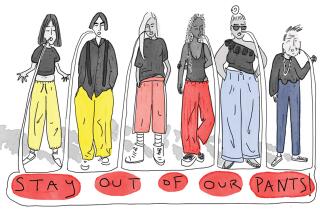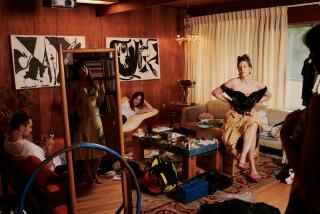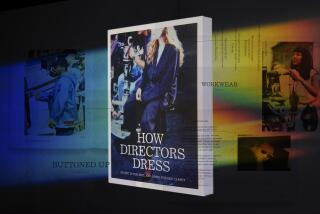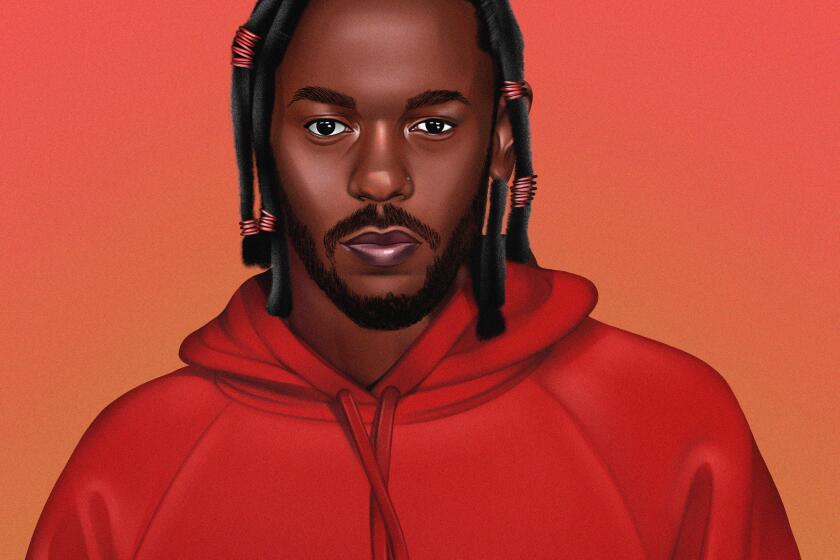Denim is Dona Granata’s canvas
FOR AS long as she can remember, Dona Granata has been fascinated by costumes, whether it be the theatrical attire of the stage or the opulent movie fashions of Hollywood’s Golden Age. “It’s always appealed to me,” she says. “Part of it is a fantasy-reality thing and how it affects the whole persona of someone, watching these fabulous actresses completely change their look.”
After graduating from high school, Granata moved from Connecticut to New York to study art at Columbia University, though her love of theater prompted her to pursue a graduate degree in set lighting and costume design. It was during her stint as an assistant to noted British designer Tony Walton that she worked on her first movie, 1978’s “The Wiz.”
These days, the fiftysomething, New York-based designer’s efforts can be seen on the big screen in “ The Sisterhood of the Traveling Pants 2,” but she also dabbles in theater, opera and television -- she won an Emmy for her work on 2001’s “Life With Judy Garland: Me and My Shadows.”
True colors
FOR “SISTERHOOD 2,” Granata spoke at length with director Sanaa Hamri about creating a different color scheme for each of the four main characters, played by America Ferrera, Alexis Bledel, Blake Lively and Amber Tamblyn, who share a pair of magic jeans that stretch to fit each of them perfectly. “Sanaa was approaching the screen like a painting, which was really exciting to me,” says Granata, who looked to modern art for inspiration, particularly the color palettes of Robert Rauschenberg and Henri Matisse.
When it came time to dress Ferrera’s bookish Carmen, “We stayed relatively somber,” Granata says, and for Bledel’s pensive, artistic Lena, “there was a delicacy to her look, so I used a lot of white on white and blue.” Granata kept Tamblyn’s sardonic Tibby edgy in a lot of black, “but underneath you’ll see green and some hot pinks and little bits and pieces that just kind of pop out of her,” she says. And, Granata says, Lively’s adventurous Bridget was dressed in brights to highlight her upbeat personality and “her athleticism and her straightforwardness about life.”
Not to ruin the magic, but in reality “each of [the actresses] had their own pants because their sizes are so amazingly diverse [with] their heights,” Granata says. “We had to keep the leg long and make sure it had a nice sensuality for the girls, so it didn’t look clunky.” The Levis then had to go through a wear-and-tear process to make them look nice and lived-in. “The pants got washed and bleached and sanded,” she adds. “They went through a huge process of distressing, and then certain patches and things got put on, and some of those things got distressed.”
In the first movie, the jeans were mostly unadorned, but in the sequel, the pants went through four phases of artistic development, with more mementos added as they passed from character to character. “Sanaa and I felt very strongly that we needed to up the flash and the funk of the pants,” Granata says. “As the pants traveled, they became more embellished, because the idea was that each girl put her experience on the pants. There’s everything from patches to buttons to marker to glitter pens to rhinestones to lace, ribbons -- everything we thought that would work. They became a work of art, those pants.”
More to Read
From the Oscars to the Emmys.
Get the Envelope newsletter for exclusive awards season coverage, behind-the-scenes stories from the Envelope podcast and columnist Glenn Whipp’s must-read analysis.
You may occasionally receive promotional content from the Los Angeles Times.








